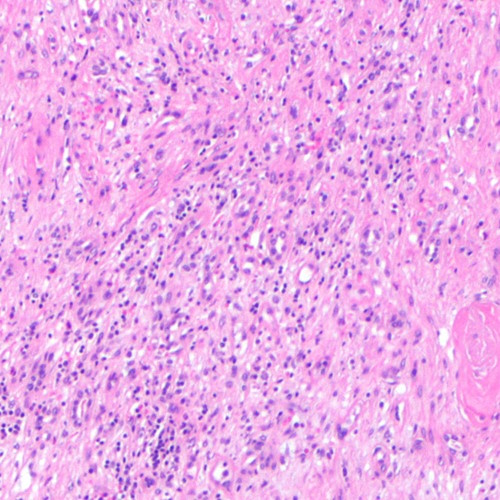Longevity has always fascinated scientists, leading to the question of what allows some individuals to live beyond 100 years, even reaching 110 and beyond. Researchers in Sicily conducted a study on semi- and supercentenarians to explore the role of immune-inflammatory responses in extreme longevity.
Their findings suggest that effective immune system regulation plays a crucial role in prolonged lifespan, providing valuable insights into how the body adapts to ageing.
Immune-Inflammatory Markers in Long-Lived Individuals
The study analyzed 249 individuals aged between 19 and 111 years. Researchers focused on two key inflammatory markers: the INFLA-score and the Systemic Inflammation Response Index (SIRI). These indicators measure how well the immune system manages inflammation, which is a major driver of age-related diseases.
Additionally, they evaluated the Ageing-Related Immune Phenotype (ARIP), which assesses immune cell functionality. This analysis aimed to determine whether immune system adaptation plays a role in achieving extreme longevity.
Inflammation and Ageing: A Complex Relationship
The results showed that, on average, both scores steadily increased as people aged, which reflects a gradual weakening of the immune system.
However, the study found a surprising exception. Unlike most elderly individuals, semi- and supercentenarians did not have the same high levels of inflammation.
Even though they were well over 100 years old, their inflammatory markers were comparable to those of much younger individuals. This means that while their bodies had aged, their immune systems functioned in a way that prevented excessive inflammation, which is usually associated with aging and disease.
This discovery suggests that controlling inflammation may be a key factor in achieving extreme longevity. Normally, as the immune system weakens with age, it becomes less effective at regulating inflammation, leading to chronic inflammation that damages tissues and organs. But in semi- and supercentenarians, their immune systems appeared to maintain better balance, preventing harmful levels of inflammation from developing.
This could explain why they were able to live longer and healthier lives than most people.
Role of CD8+ T Cells in Longevity
Another key finding was the role of CD8+ T cells, which are essential for immune function.
These cells help the body fight infections and remove damaged or cancerous cells. In semi- and supercentenarians, CD8+ T cells exhibited unique patterns, suggesting that their immune systems had adapted over time.
Their immune balance allowed them to prevent excessive inflammation while still responding effectively to infections. This ability to maintain immune equilibrium may be a defining trait of individuals who achieve extreme longevity.
Lifestyle and Environmental Factors That Support Longevity
While genetics and immune system adaptations play a role in longevity, daily habits and surroundings also matter. The study found that many supercentenarians shared similar lifestyle and environmental factors that likely contributed to their long and healthy lives.
A key factor was their diet. Most followed a Mediterranean diet, which is known for its anti-inflammatory properties. This diet includes plenty of fruits, vegetables, whole grains, nuts, and olive oil, along with moderate amounts of fish and dairy. These foods contain antioxidants and healthy fats, which help reduce inflammation in the body. Since chronic inflammation is linked to age-related diseases like heart disease and diabetes, eating these foods may help slow down aging.
Their living environment also contributed to their health. Many of these long-lived individuals lived in small towns with clean air and low pollution levels. Pollution is known to increase inflammation and stress in the body, so avoiding it may have helped protect their health over time. Additionally, living in quieter, less crowded places likely contributed to lower stress levels, which can also help reduce harmful inflammation.
Another important factor was social connections and family support. Many supercentenarians lived in close-knit communities where family members played an active role in their daily lives. Studies have shown that strong social bonds help reduce stress and promote mental well-being, both of which are important for maintaining a healthy immune system. People who feel supported and engaged tend to have lower levels of stress hormones, which can otherwise weaken the immune system over time.
Lastly, their lifestyle choices reflected habits that supported long-term health. Many engaged in regular physical activity, even if it was just walking or doing daily household tasks. They also had low-stress lifestyles, avoiding the chronic stress that can accelerate aging. Managing stress effectively, whether through social interactions, a peaceful environment, or an active lifestyle, may have helped them maintain better overall health.
Why This Matters
Chronic inflammation is a major risk factor for age-related diseases, including cancer, diabetes, cardiovascular conditions, and neurodegenerative disorders. If semi- and supercentenarians can naturally regulate inflammation, studying their immune function could help scientists develop strategies to promote healthy aging in the general population.
Instead of focusing solely on treating diseases, future research could explore ways to enhance immune balance, potentially extending both lifespan and healthspan.
Practical Takeaways for a Longer, Healthier Life
For individuals looking to promote longevity in their own lives, this study highlights the importance of lifestyle choices. A diet rich in antioxidants, regular physical activity, stress reduction techniques such as meditation or mindfulness, and maintaining strong social connections could all contribute to better immune health and increased resilience against aging. Additionally, monitoring inflammatory markers and making proactive health decisions may help manage biological aging more effectively.
This research reinforces the idea that extreme longevity is not solely determined by genetics. The ability to control immune-inflammatory responses appears to be a key factor in those who live beyond 100 years.
While no single path guarantees longevity, maintaining immune balance may be one of the most important factors in extending lifespan and improving overall health. The insights gained from studying Sicilian supercentenarians provide valuable lessons, not just for scientists but for anyone interested in unlocking the secrets of aging well.
The study is published in the journal Biology. It was led by researchers from University of Palermo.







